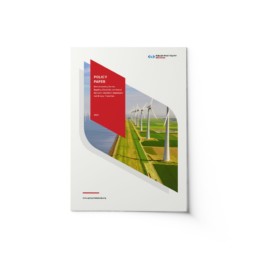This policy paper discusses a just energy transition, particularly in the context of mainstreaming gender equality, disability, and social inclusion (GEDSI). This study focuses on vulnerable groups residing in areas affected by energy transition and areas close to development sites of the energy sector, both conventional and renewable. These vulnerable groups, in addition to women and people with disabilities, include indigenous peoples, older people, children, disaster survivors, and low-income communities.
To date, the energy transition continues to rely on conventional energy sources to support the development of clean energy technologies, such as electric vehicles that require a supply of nickel as one of the raw materials. Hence, this policy paper focuses on affected communities and vulnerable groups living in upstream mining areas, renewable energy development sites, and other areas linked with the downstream.
This policy paper adopts and combines multiple principles, conceptual frameworks, and inclusive indicators in the energy sector. The principles in question consist of five items: participation and control in decision-making processes; economic justice; access to natural resources, education, and information; socio-cultural integration; and grievance and remediation mechanisms. Further, the concept of justice introduced by Jenkins et al. (2016) encompasses four aspects: distribution, recognition, procedures, and recovery. In addition, this policy paper incorporates the Access, Control, Participation, and Benefits (AKPM) indicators developed by the Ministry of Women’s Empowerment and Child Protection (KPPPA) of the Republic of Indonesia as part of the analysis tools.
